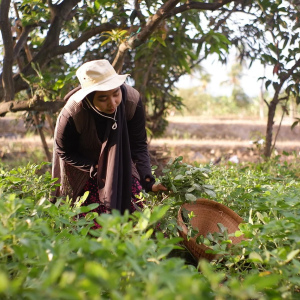
This paper assesses four recent influential publications on food - the EAT Lancet Commission, the World Resources Report, Growing Better from the Food and Land Use Coalition and the IPCC Special Report on Climate Change and Land. It argues that they do not give enough attention to the livelihoods of food producers, particularly poorer rural people. The authors note that only a limited subset of smallholder producers are likely to be able to escape poverty through growth in their agricultural productivity.
Abstract
Even prior to COVID, there was a considerable push for food system transformation to achieve better nutrition and health as well as environmental and climate change outcomes. Recent years have seen a large number of high visibility and influential publications on food system transformation. Literature is emerging questioning the utility and scope of these analyses, particularly in terms of trade-offs among multiple objectives. We build on these critiques of emerging food system transformation approaches in our review of four recent and influential publications from the EAT-Lancet Commission, the IPCC, the World Resources Institute and the Food and Land Use Coalition. We argue that a major problem is the lack of explicit inclusion of the livelihoods of poor rural people in their modelling approaches and insufficient measures to ensure that the nature and scale of the envisioned changes will improve these livelihoods. Unless livelihoods and socioeconomic inclusion more broadly are brought to the centre of such approaches, we very much risk transforming food systems to reach environmental and nutritional objectives on the backs of the rural poor.
Reference
Davis, B., Lipper, L. and Winters, P., 2022. Do not transform food systems on the backs of the rural poor. Food Security, pp.1-12.
Read the full paper here or here (PDF link). See also the TABLE explainer What is food security












Post a new comment »